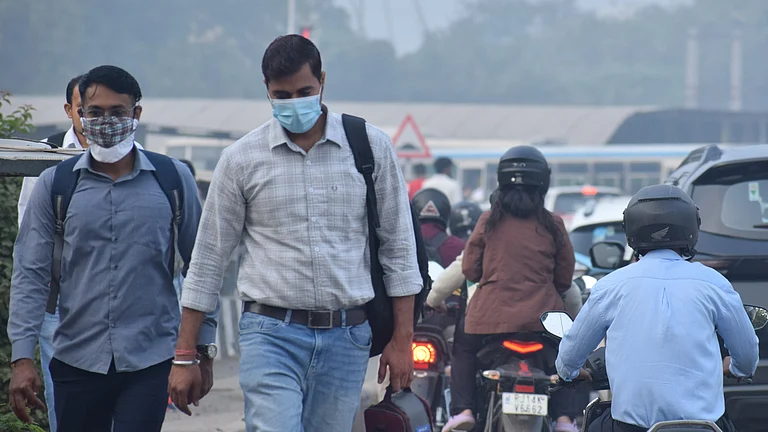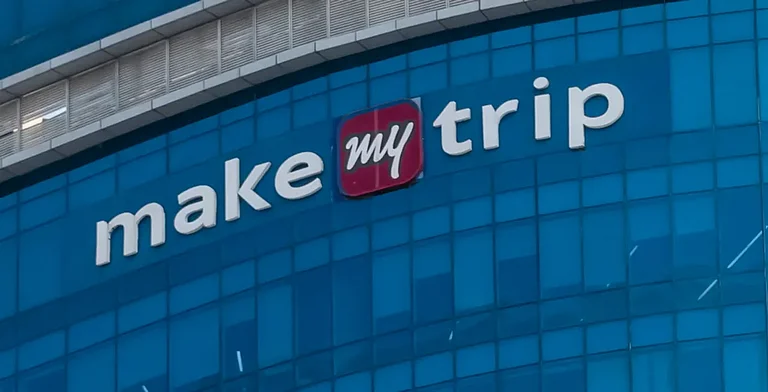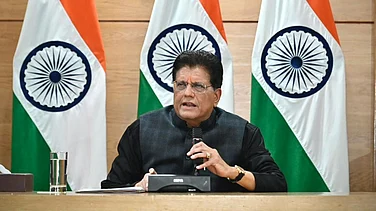Telecom firm Vodafone Idea (Vi), jointly helmed by Berkshire-based Vodafone and India’s Aditya Birla Group, is in talks with several banks to secure loans worth more than Rs 7,000 crore, according to an Economic Times report. Lenders like State Bank of India, Punjab National Bank, HDFC Bank and IDFC First have been approached for the same.
The ‘emergency loans’ will be used to clear some of Vodafone Idea’s dues towards Indus Towers. According to the report, Vodafone Idea’s monthly dues towards Indus are estimated at Rs 250-300 crore and the overall due amount is around Rs 7,500 crore.
Indus Towers provides infrastructure to telecom operators and is touted as the country’s largest mobile tower installation company. Vodafone Idea’s unpaid dues are pushing the tower company to a spot of bother as well. If the telecom firm continues to fail at making the payments, Indus’ trade receivables will keep rising and eventually have to be written off, Kotak Securities recently warned. About 10 per cent of the Indus’ annual overall revenue could be jeopardised if Vodafone Idea continues to fail at due repayment.
Moreover, it is not just Indus Towers that is desperately looking forward to payment from Vodafone Idea. The telecom company is in debt to ATC India, another telecom infra provider, multinational telecommunications companies Nokia and Ericsson, as well as a slew of banks. It is likely that Vodafone Idea will prioritise its repayments towards banks over other lenders because banks, being recognised financial institutions, can easily drag them to regulatory bodies like NCLT.
Vodafone Idea’s struggles to pay back its loans go a long way back and this has also put the central government in a tough position. Last year, the centre had stepped in to acquire a stake in debt-ridden Vodafone Idea, following the telecom company’s inability to pay interest due for spectrum fees and adjusted gross revenue (AGR) charges.
This means the government could have a 33 per cent stake in Vodafone Idea, once the debt is converted to equity. In 2021, the telecom company opted for a four-year moratorium on payment of spectrum dues. It is the interest on this moratorium—adding up to Rs 16,000 crore—that can be converted to 33 per cent equity stake to be owned by the government.
Subsequent to this equity conversion, Vodafone’s stake in Vodafone Idea will fall from 47.61 per cent to 31.8 per cent, and Aditya Birla Group’s hold will drop from 27.38 per cent to 18.3 per cent. However, government will take its final decision on equity conversion only after Vodafone Idea’s share price stabilises at Rs 10. Presently, its trading at Rs 7.85 on the NSE.
Regarding government’s conversion of debt to equity, Telecom Minister Ashwini Vasihnaw said on Thursday that it is complex issue that is still under discussion. He said, “Vodafone (Idea) has many requirements. It has a particular requirement of capital. How much capital, who will infuse? All those things are under discussion at this point of time.”
There is no doubt that India’s third biggest telecom player is in dire need of capital infusion. There is no other way to overcome its consolidated debt of around Rs 2 lakh crore. Major lenders like State Bank of India are unwilling to approve any new loans until there is clarity in the government’s stake holding. While that is unlikely to fructify soon, Vodafone Idea is falling very far behind in the telecom sector.
The company’s major rivals are Reliance Jio and Bharti Airtel who are, in a way, turning the space into a duopoly. Jio and Airtel are busy setting up 5G networks across India, while Vodafone Idea is yet to announce any concrete 5G plans. Even state-owned BSNL has announced plans to establish 5G network by 2024. According to telecom regulatory body TRAI’s data, 35 lakh mobile subscribers left Vodafone Idea’s network in October 2022, adding more users to Jio’s and Airtel’s networks.
Unless Vodafone Idea manages to infuse fresh capital soon, it is likely that the company will continue losing more of its user base to its rivals. As 5G becomes the talk of the town in the telecom space, how much longer can a debt-ridden network that is lagging on 5G technology keep running? Only time will tell.
































